Blog
Insights
The Rise Of Restaurant-Owned Private Label Wines
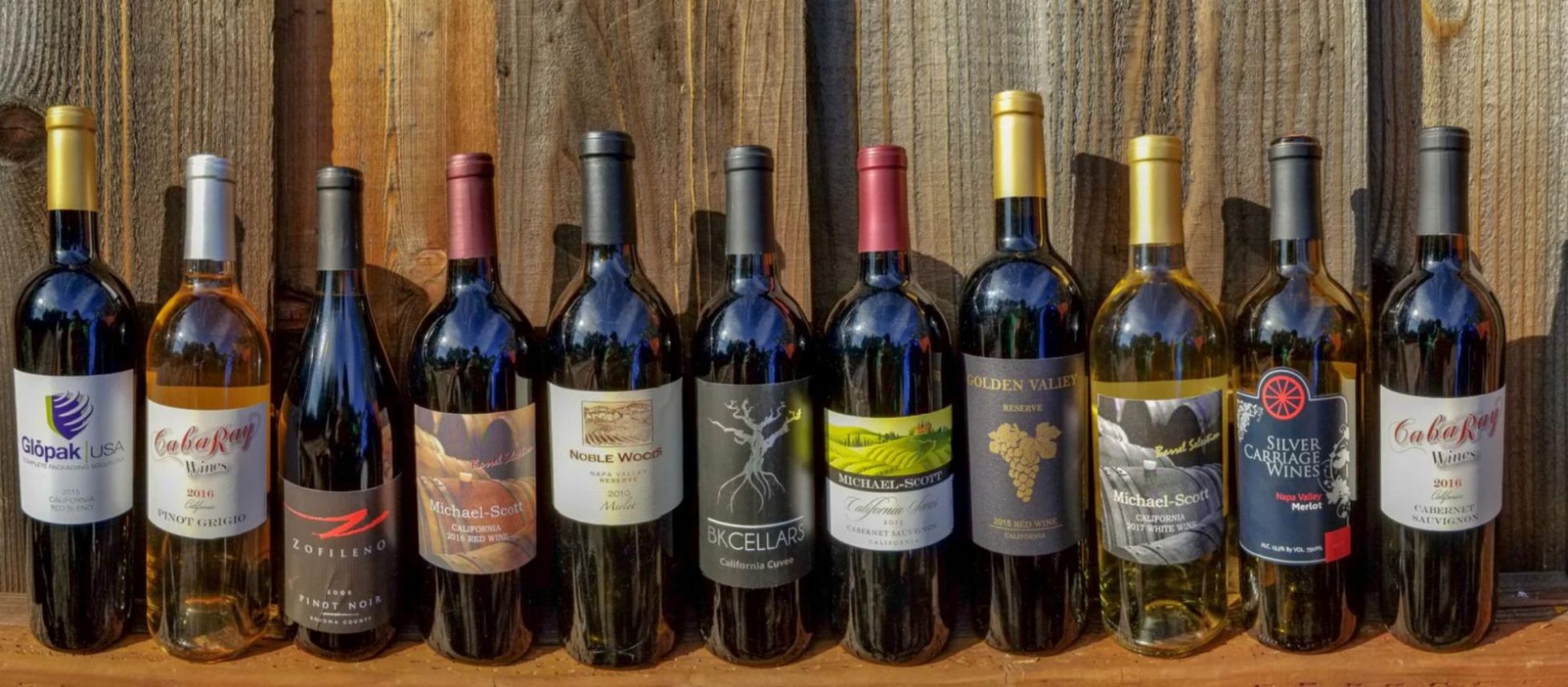
Custom wines are giving U.S. restaurants new power by allowing them to control quality, build brand identity, and turn sips into loyalty.
Walk into a modern American restaurant today, and the wine list might surprise you, not because of rare vintages or obscure imports but because one or more bottles are labeled with the restaurant’s name. This isn’t a coincidence or a gimmick. Across the country, restaurants are increasingly launching their private label wines, and the trend is picking up steam far beyond just upscale destinations. According to data from Torg, the private label market in the U.S. has seen steady growth over the past decade. Since 2012, this segment has doubled in size and now accounts for approximately 8 to 10 percent of domestic wine sales.
What started as a niche strategy in luxury dining rooms has expanded into mid-tier bistros, regional chains, and chef-driven concepts, all leveraging custom wine offerings to sharpen their identity and boost revenue. This shift reflects deeper changes in hospitality. Diners today seek experiences that feel intentional and tailored. They’re more likely to respond to wines that feel connected to the restaurant’s story rather than mass-produced or anonymous. For operators, a private label wine is not just something to pour; it’s a tool to shape perception, elevate loyalty, and control margins in a highly competitive market.
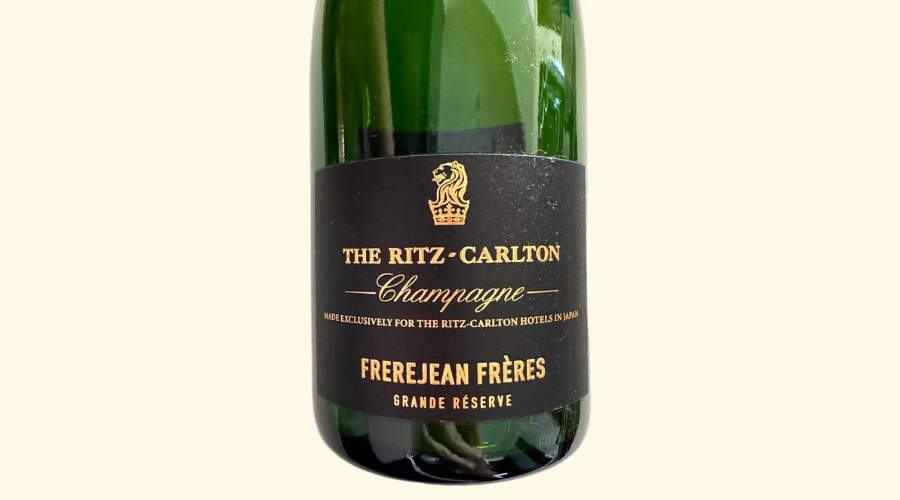
Source: Instagram
The Business Case for Private Label Wines
Restaurants are embracing private label wines because they make business sense. First, they deliver superior profit margins. By cutting out traditional distribution layers or working directly with producers, restaurants can secure better per-bottle pricing. Whether they’re sourcing from a domestic winery or using a custom crush facility, restaurants gain control over costs without sacrificing quality. Second, there’s the customer appeal. Diners are more likely to try something branded as exclusive or house-made. A wine labeled specifically for the restaurant suggests care, intention, and craft. It invites curiosity, especially when there’s a compelling backstory or a recommended pairing from the chef.
Consider a mid-size hospitality group operating seasonal American restaurants across the Midwest. Instead of relying on national distributors, they source a Chardonnay from a family-run winery on the West Coast, rebranded with their design and poured as the “house white.” Not only does the markup outperform imported labels, but it reinforces the restaurant’s farm-to-table ethos. In a competitive industry where margins are slim and differentiation is key, private label wines offer a strategic edge.
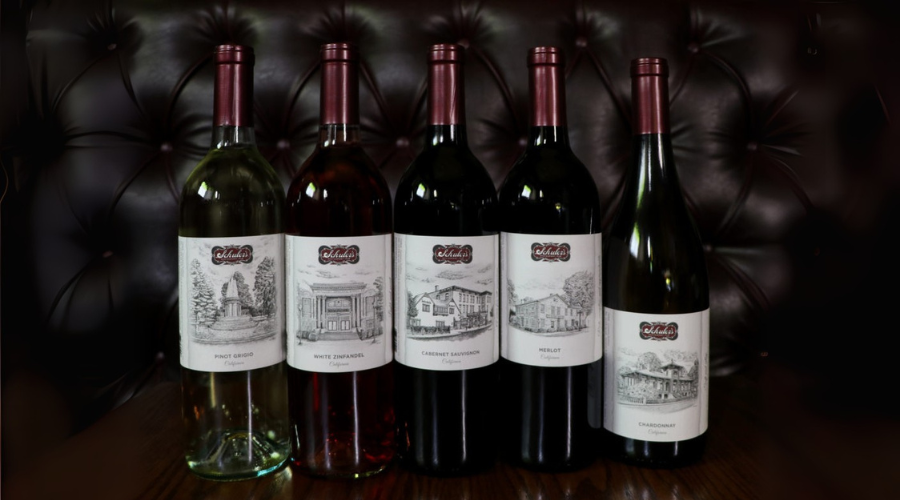
Source: Schuler’s Restaurant & Pub
How the Supply Chain Makes It Possible
Behind every restaurant-labeled bottle is a flexible and increasingly accessible supply chain. The U.S. wine industry, particularly in California, Oregon, and Washington, has evolved to accommodate hospitality partnerships. Wineries and custom crush facilities now offer turnkey white-label services, allowing restaurants to choose varietal blends and packaging without needing to own vineyards or bottling lines. These services often include in-house design teams, compliance handling, and even assistance with storytelling and brand narrative. That means a restaurant can go from concept to shelf-ready bottle in a matter of months.
The growth of boutique importers and negociants also expands options beyond domestic wines. Restaurants can now source Malbec from Mendoza or Sangiovese from Tuscany, relabeled and shipped with exclusivity built in. For restaurants with a strong identity or culinary heritage, this allows alignment between cuisine and wine at a whole new level. A clear example is Schuler’s Restaurant & Pub in Michigan, which introduced a line of private-label wines celebrating historic Marshall landmarks. This collaboration reflects both the heritage of the region and the restaurant’s long-standing community presence, with wines curated to pair with their signature Midwestern cuisine while reinforcing a deep sense of place and local identity through the beverage program.
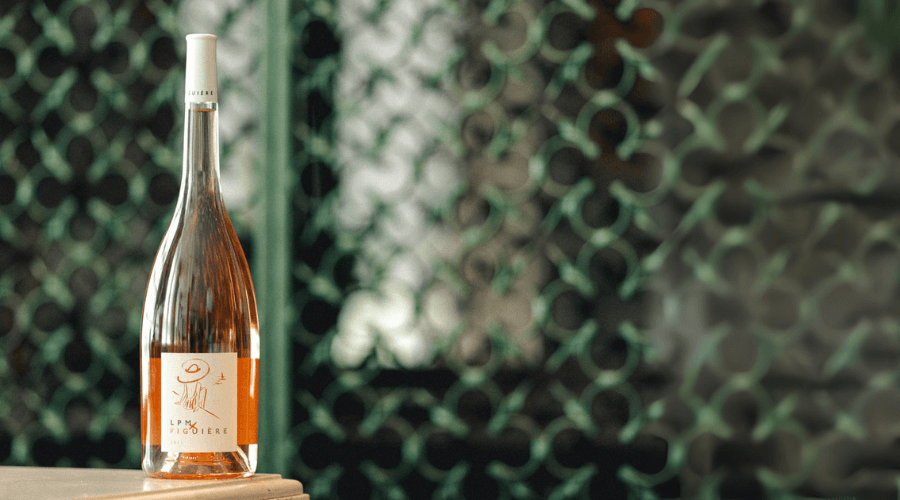
Source: Caterer
Reinforcing Brand Identity Through the Bottle
More than a revenue strategy, private label wines are branding tools. In a crowded dining landscape, storytelling is everything. A bottle of wine that reflects a restaurant’s ethos, through its name, label design, and origin, creates a tangible, memorable piece of the brand experience. Restaurants are using their private labels to echo their voice. A downtown bistro might opt for minimalist design and obscure varietals to convey sophistication. A rustic inn could choose hand-drawn labels and earthy blends to match its farmhouse vibe. Every choice, from cork to capsule, contributes to a broader narrative. This isn’t just about aesthetics. It’s about extending the dining experience beyond the plate. When a server presents a restaurant’s proprietary wine, it opens the door to a conversation: “This blend was made just for us. It’s meant to pair with our short rib.”
LPM Restaurant & Bar, which brings a French Riviera dining experience to cities like Miami, collaborated with Domaine Figuière to craft a signature Provence rosé that aligns perfectly with its upscale Mediterranean menu and elegant aesthetic. This wine is not just a pairing but an extension of the brand, reinforcing the restaurant's identity through every pour.
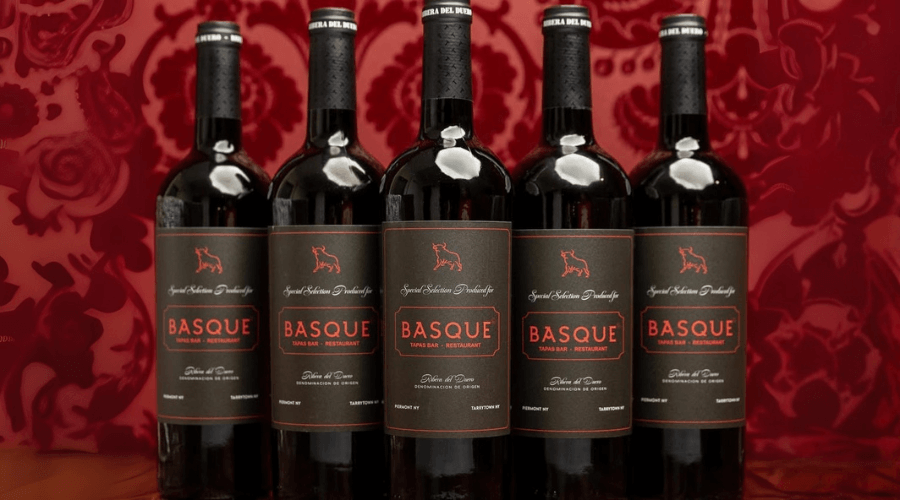
Source: Basque Tapas Bar
Customer Perception and Loyalty
From the guest's perspective, private label wines signal care and exclusivity, fostering trust and elevating perceived quality. Diners often assume that if a restaurant puts its name on a bottle, it must be a product the establishment truly stands behind. That trust empowers restaurants to confidently promote these wines while giving servers a compelling story to share. There's also an emotional hook—customers are more likely to remember a wine they can't find on retail shelves, embedding it into the memory of their night out. This connection opens the door to follow-up sales such as retail bottles, seasonal gift sets, wine clubs, and email engagement. For example, a modern American brasserie in the Pacific Northwest may offer its signature red as part of a curated holiday package, reinforcing brand loyalty and extending the restaurant experience into customers' homes. When private label wines are positioned not simply as menu items but as memorable brand touchpoints, the result is a wine strategy driven less by upselling and more by genuine connection.
Private label wines are no longer just a creative side project; they’ve become a core strategy for U.S. restaurants seeking stronger identity, deeper customer engagement, and better financial control. What started as an upscale novelty has evolved into a scalable model used by steakhouses, farm-to-table spots, and national chains alike. From story-driven labels to curated blends that match signature dishes, these wines help restaurants speak in their voice, right down to the last sip. The versatility of the model makes it even more compelling. Whether it’s a high-end Pinot Noir developed with a boutique estate or a volume-friendly Syrah crafted for a global chain, private label wines let restaurants shape every aspect of the experience. As consumers increasingly demand authenticity and memorable moments, having a house wine that reflects the brand’s essence is more valuable than ever. Looking ahead, private label wines are poised to become standard practice, not a trend, but an expectation. Restaurants aren’t just pouring wine anymore; they’re crafting a full-circle experience, bottled and branded with intention. The wine list is no longer a supporting act. In many cases, it’s becoming the headliner.
Header image source: Michael-Scott Wines
Also Read:
Private Label Evolution: Via Pacifica’s Strategy for Growth and Quality
What goes into the retailer’s wine and spirits private label program buying decision?
Private Label Spirits: A Growing Category in the USA
If you're a bulk wine or bulk spirits supplier, contract bottler, or private label producer aiming to connect with serious trade buyers, IBWSS San Francisco is the event you can't afford to miss. Get a quotation or Book a exhibitor table.

